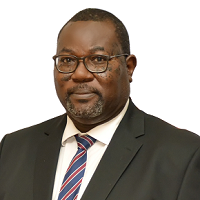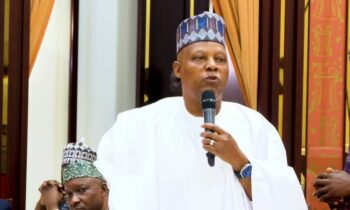… mandate from the Federal Government makes NNPC to be selling petrol at a loss
… I will not feel bad buying petrol at N300 per litre– Timipre Sylva
The minister of state for Petroleum Resources, Timipre Sylva and Mele Kyari, group managing director of the Nigerian National Petroleum Limited, have contradicted each other over the actual time the country would put an end to full importation of fuel.
The minister’s statement that the first quarter of 2024 would be when the country would put an end to full importation of fuel contradicts the earlier statement credited to Mele Kyari, NNPC’s group managing director who in August last year emphatically declared that full importation would end in 2023.
Kyari, who spoke during the weekly Ministerial Briefing, hosted by the Presidential Communication Team at the Presidential Villa, Abuja, in August 2022 had told the journalists present at the event that the country will stop importing petroleum products by 2023.
What has happened between August last year and now that has warranted a further extension of the deadline is yet to be disclosed to Nigerians by government officials.
Timipre Sylva while presenting the scorecard of his ministry on Monday projected that by the first Quarter of 2024, Nigeria would put an end to the importation of petroleum products into the country.
He said by the first quarter of 2024 the rehabilitation of the Port Harcourt refinery would be partly completed while the 650,000 barrel per day capacity Dangote Refinery would also be on stream.
Sylva stated this at the resumption of the “PMB Administration Scorecard Series (2015-2023)” organised by the Ministry of Information and Culture.
Presenting the scorecard of his ministry, Sylva specifically said the 60,000 bpd capacity refinery within the Port Harcourt Refinery complex would be ready for production by Q1 2023.
The Minister added that the Dangote Refinery, the largest single-train refinery in the world with investment of over 25 billion United States dollars would also be on stream before the end of 2023 in addition to several modular refinery projects in the country.
He, therefore, assured Nigerians that with the combined production of the Port Harcourt refinery, Dangote refinery and the modular refineries, Nigeria would end importation of petroleum products into the country.
The minister disclosed that to ensure local supply of the productions by the private refineries, the Federal Government deliberately took 20 per cent equity stake in the Dangote Refinery.
Equally, the minister said the FG took 30 percent equity stake in each of the 5000bpd Walter Smith modular refinery in Ibigwe, Imo State and 10,000 bpd Duport Modular Refinery in Edo State among others.
He said the government was currently addressing the challenge of access to crude oil being faced by the modular refineries.
The minister also said the huge fund being spent on subsidy could be deployed to other developmental projects that would impact positively on many Nigerians.
He added that the removal of subsidy would attract more investment into the petroleum sector as many private people would be willing to invest in building refineries.
Why selling PMS at a loss
The Nigerian National Petroleum Company Limited is selling Premium Motor Spirit, popularly called petrol, at a loss because of its mandate from the Federal Government as regards PMS subsidy, the Minister of State for Petroleum Resources, Timipre Sylva, said on Monday.
The minister who was responding to the statement of an oil marketer that dwelled on the problems in the downstream oil sector that often leads to fuel scarcity, stating that this might persist till June, based on the government’s plan to end petrol subsidy month, insisted that it was a mandate on NNPC which had made the oil firm to continue selling PMS at a loss.
“The management of the supply situation under this subsidy regime is not easy. We must all agree that so much money is being burnt in our cars, but somehow we have to put funds to continue to keep the country wet.
“Sometimes if you really think deeply you begin to wonder what magic we are doing to be able to keep this country wet consistently. Considering that you buy something, let’s say for N10, and you are to sell it at a loss.
“And then you are expected to go back to buy the same thing, and come back again to sell it at a loss. So at every point in time you are looking for more money to continue to buy it, because you’re mandated to sell it at a loss.”
He went further to state that, “So if you are a businessman, look at it from this perspective, that you are now in the business where you are mandated to sell at a loss to the public. That is not an easy job, I must tell you.”
Respond in to a question on how he would feel when buying petrol at N300/litre, Sylva said he would not feel bad about it.
“If you ask me how I will feel as a private citizen to buy petrol at N300/litre, sadly, I will say I won’t feel bad, knowing the actual situation. And if you compare Nigeria to other countries, you will understand,” he stated.
The minister added, “When you convert the N300/litre that you are talking about to other currencies, then you will understand. A lot of you travel to the United Kingdom or the United States, how much do you buy petroleum products there? Even in Arab communities that produce crude oil.”
He said the cost of the commodity in Nigeria was not as high as what was obtained in other countries, but stressed that the current national consensus was that subsidy on petrol was no longer sustainable.
“Unfortunately we are still in a subsidised regime, which all of us know. As a country, I think it is a national consensus now that subsidy is not sustainable, but together we will get there,” Sylva stated.




